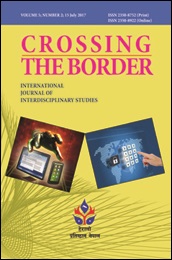Non-Native Accent, Favoritism and the Law
DOI:
https://doi.org/10.3126/ctbijis.v5i2.18433Keywords:
Accent, discrimination, accent modification, bilingualism, second languageAbstract
Social science has predominantly discussed accent bias against non-native speakers, although not always. In this paper, positive consequences and favoritism of non-native accent will be reviewed along with the legal provision available in the USA to counter accent based discrimination. Specifically, this paper will present how listeners exhibited preferential treatments towards speakers with non-native accent and how some non-native speakers are more immune to negative discrimination. Brief introduction to Title VII of the 1964 Civil Rights Act will also be presented as a potential legal provision available to employees, students and to anyone if they are discriminated against due to their non-native accent.
Crossing the Border: International Journal of Interdisciplinary Studies 5(2) 2017: 3-14

